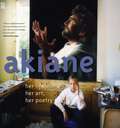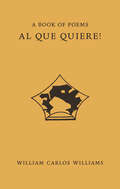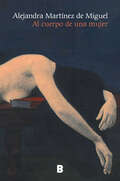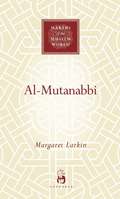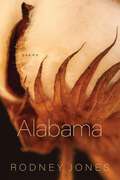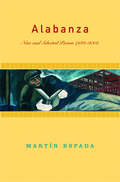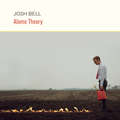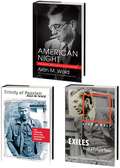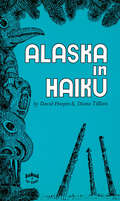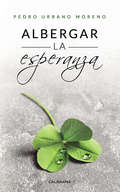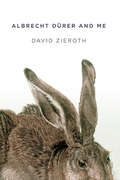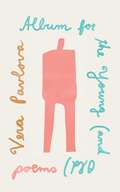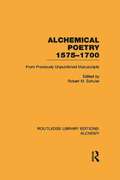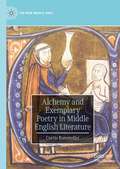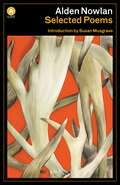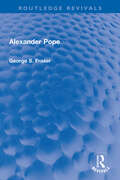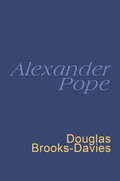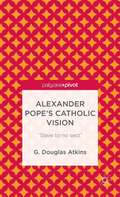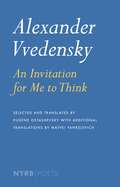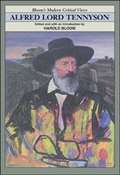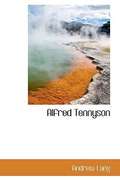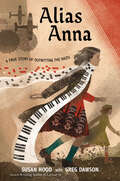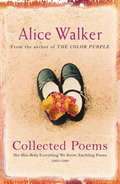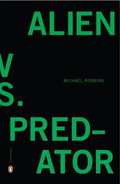- Table View
- List View
Akiane: Her Life, Her Art, Her Poetry
by Akiane KramarikExperience the wonder of child prodigy Akaine Kramarik&’s divinely inspired artwork firsthand.Akiane&’s nonreligious parents were bewildered when their four-year-old daughter started sharing her dreams of angels, heaven, and Jesus. Her spiritual insight quickly expressed itself through impressive sketches, drawings with oil crayons, paintings, and eventually poetry, and her artwork began a conversation that brought her whole family to Christianity and to the attention of national media. Akiane: Her Life, Her Art, Her Poetry shares the young artist&’s story in rich detail, includingher mother&’s firsthand account of Akiane&’s emerging faith and artistic talent;a collection of full-color paintings created by Akiane from ages 4 to 10, along with the amazing stories that surround each piece of art; andselected poems of profound beauty and insight, authored by Akiane in her childhood.This book will encourage any who believe in the spiritual nature of art and reinvigorate the faith of those who call Jesus their savior.
Al Que Quiere!: Al Que Quiere!
by William Carlos Williams Jonathan CohenThe centennial edition of William Carlos Williams’s early ground-breaking volume, containing some of his best-loved poems Published in 1917 by Four Seas Press, Al Que Quiere! was William Carlos Williams’s third poetry book—his breakthrough volume—and contains some of his best-loved poems (“Tract,” “Apology,” “El Hombre,” “Danse Russe,” “January Morning,” and “Smell!”), as well as a Whitmanesque concluding long poem, “The Wanderer,” that anticipates his epic masterpiece Paterson. Al Que Quiere! is the culmination of an experimental period for Williams that included his translations from Spanish. The Spanish epigraph of Al Que Quiere! is from the short story “El hombre que pareci´a un caballo” (“The Man Who Resembled a Horse”) by the Guatemalan author Rafael Are´valo Marti´nez. This centennial edition contains Williams’s translation of the story (made with the help of his father), as well as a fascinating chapter from a book of conversations with Williams, I Wanted to Write a Poem, in which he comments on the individual poems.
Al cuerpo de una mujer
by Alejandra Martínez de MiguelVuelve Alejandra Martínez de Miguel -la poeta que revolucionó la poesía con su fuerza escénica- con un libro íntimo y valiente, un homenaje al cuerpo que desea. Un íntimo retrato del deseo. Un homenaje valiente al cuerpo. Este poemario es un homenaje audaz, incómodo, íntimo y combativo al cuerpo -el cuerpo enfermo, el cuerpo que se deshace de placer, el cuerpo de nuestra infancia, el cuerpo culpable, el cuerpo de las mujeres que nos precedieron, el cuerpo que se desborda, el cuerpo que nos acompaña, el cuerpo que se destruye y se sana- y al deseo, que al fin está permitido. ve hacia el deseopor qué no puedesqué tefrenaquién te mirasi aquí no hay nadiesi lo has pactadosi hay un pacto sagrado de fuego con tu cuerpo y el deseosi está permitidohazloqué cobarde qué pequeña qué mal lo has entendido querida,el deseo al fin está permitido La crítica ha dicho:«Una poeta que rabia desde las entrañas».María Sánchez «Alejandra Martínez de Miguel observa su cuerpo y el de las otras; analiza su deseo y el de las otras; convierte en poemas íntimos y torrenciales los aprendizajes de este árbol genealógico de la palabra y de la carne. Y tomándonos de la mano, con suavidad, nos eleva».Luna Miguel
Al-Mutanabbi: The Poet Of Sultans And Sufis (Makers of the Muslim World)
by Margaret LarkinThis exhaustive and yet enthralling study considers the life and work of al-Mutanabbi (915-965), often regarded as the greatest of the classical Arab poets. A revolutionary at heart and often imprisoned or forced into exile throughout his tumultuous life, al-Mutanabbi wrote both controversial satires and when employed by one of his many patrons, laudatory panegyrics. Employing an ornate style and use of the ode, al-Mutanabbi was one of the first to successfully move away from the traditionally rigid form of Arabic verse, the 'qasida'.
Alabama: Poems
by Rodney JonesAlabama focuses on a boy from a rural, fundamentalist community who becomes a pacifist, feminist, and existentialist poet. Labyrinth, meditation, fable, and peasant poem, formed from interleaved strands of prose vignettes and lineated poetry, this collection is at once a tale of cultural exile and familial loyalty, and an unflinching look at regional shame that doubles as a love story, all expressed with the intimate voice and vision of Rodney Jones.
Alabanza: New and Selected Poems 1982-2002
by Martín Espada"An astonishing collection of political poetry at its finest."--The Progressive, Favorite Books of 2004 Alabanza is a twenty-year collection charting the emergence of Martín Espada as the preeminent Latino lyric voice of his generation. "Alabanza" means "praise" in Spanish, and Espada praises the people Whitman called "them the others are down upon": the African slaves who brought their music to Puerto Rico; a prison inmate provoking brawls so he could write poetry in solitary confinement; a janitor and his solitary strike; Espada's own father, who was jailed in Mississippi for refusing to go to the back of the bus. The poet bears witness to death and rebirth at the ruins of a famine village in Ireland, a town plaza in México welcoming a march of Zapatista rebels, and the courtroom where he worked as a tenant lawyer. The title poem pays homage to the immigrant food-service workers who lost their lives in the attack on the World Trade Center. From the earliest out-of-print work to the seventeen new poems included here, Espada celebrates the American political imagination and the resilience of human dignity. Alabanza is the epic vision of a writer who, in the words of Russell Banks, "is one of the handful of American poets who are forging a new American language, one that tells the unwritten history of the continent, speaks truth to power, and sings songs of selves we can no longer silence." An American Library Association Notable Book of 2003 and a 2003 New York Public Library Book to Remember. "To read this work is to be struck breathless, and surely, to come away changed."--Barbara Kingsolver "Martín Espada is the Pablo Neruda of North American authors. If it was up to me, I'd select him as the Poet Laureate of the United States."--Sandra Cisneros "With these new and selected poems, you can grasp how powerful a poet Espada is--his range, his compassion, his astonishing images, his sense of history, his knowledge of the lives on the underbelly of cities, his bright anger, his tenderness, his humor. "--Marge Piercy "Espada's poems are not just clarion calls to the heart and conscience, but also wonderfully crafted gems."--Julia Alvarez "A passionate, readable poetry that makes [Espada] arguably the most important 'minority' U.S. poet since Langston Hughes."--Booklist"Neruda is dead, but if Alabanza is any clue, his ghost lives through a poet named Martín Espada."--San Francisco Chronicle
Alamo Theory
by Josh Bell"Bell's work is a concoction of the surreal and the hyper-real, the hilarious and the devastating."-The New Yorker"One of the most tonally versatile young poets working today."-Boston Review"A contemporary knockout, Bell's poems run the gamut of good: they're seriously funny, bizarre, wry, ambitious, acrobatic, gorgeous. Sometimes they have zombies."-FlavorwireJoshua Bell's unnerving and darkly funny second collection of poems inhabits various personae-including a prominent series starring the garrulous and aging rock star Vince Neil from Mötley Crüe-through which he examines paranoid, misogynist, and murderous elements within contemporary American culture. Throughout are prose "movie poems" that feature zombies, a summer camp slasher, exorcism, and courtroom drama.From "The Creature":Like many humans, I enjoy lifting small, living things. Your wife qualifies, but doesn't like to be lifted. I guess it's probably because, as is true with many humans, your wife doesn't want to be eaten, and often we are lifted, by the bigger thing, right before it drops us on a rock and eats us. I understand, I say to your wife, lowering her body to the kitchen floor, her legs bending slowly as she takes back the weight I've returned to her, like an astronaut moving back into the gravity of the capsule...Josh Bell earned an MFA from the Iowa Writers' Workshop and a PhD from the University of Cincinnati. He was a member of the creative writing faculty at Columbia University and is currently Briggs Copeland Lecturer at Harvard.
Alan M. Wald's American Literary Left Trilogy, Omnibus E-Book
by Alan M. WaldOffered here for the first time as an Omnibus E-Book, this collection brings together Alan M. Wald's ground-breaking trilogy.American Night, the final volume of this unprecedented trilogy, brings Alan Wald's multigenerational history of Communist writers to a poignant climax. Using new research to explore the intimate lives of novelists, poets, and critics during the Cold War, Wald reveals a radical community longing for the rebirth of the social vision of the 1930s and struggling with a loss of moral certainty as the Communist worldview was being called into question. The resulting literature, Wald shows, is a haunting record of fracture and struggle linked by common structures of feeling, ones more suggestive of the "negative dialectics" of Theodor Adorno than the traditional social realism of the Left.The second of three volumes by Wald that track the political and personal lives of several generations of U.S. left-wing writers, Trinity of Passion carries forward the chronicle launched in Exiles from a Future Time. In this volume Wald delves into literary, emotional, and ideological trajectories of radical cultural workers in the era when the International Brigades fought in the Spanish Civil War (1936-39) and the United States battled in World War II (1941-45). Confronting questions about Jewish masculinity, racism at the core of liberal democracy, the corrosion of utopian dreams, and the thorny interaction between antifascism and Communism, Wald re-creates the intellectual and cultural landscape of a remarkable era.In Exiles from a Future Time, Wald offers a comprehensive history and reconsideration of the U.S. literary left in the mid-twentieth century. Recovering the central role Marxist-influenced writers played in fiction, poetry, theater, and literary criticism, he explores the lives and work of figures including Richard Wright, Muriel Rukeyser, Mike Gold, Claude McKay, Tillie Olsen, and Meridel Le Sueur.
Alapanai (Elucidations)
by R. Natarajan Abdul RahmanTranslation in English of the award winning title Alapanai in Tamil by Abdul Rahman.
Alaska in Haiku
by Diana Rystbaek Tillion David Townsend HoopesAlaska in Haiku is the flower of the authors' affectionate observation of life in Alaska and if their love of poetry. Sharing an interest in this shortest of all forms of poetry, they found haiku a most gratifying medium to work in. The winter moon-light-- The Shadow of the totem pole,Shadow of the spruce.The reader is invited to follow Mrs. Tillion and Dr. Hoopes through the four seasons and share their delight in Alaska. The pleasing images, highlighted by delicate drawings show nature and life in a hopeful, reassuring mood.
Albergar la esperanza
by Pedro Urbano MorenoLa flor que renace lleva en el fondo la esperanza. El ancho abanico de temas de los poemas presentes en este libro queda centrado, de forma mayoritaria, en el amor, ya sea platónico o correspondido; lo cual no resta el aporte imaginativo y el toque personal en cada uno. He querido añadir algunos escritos que, por su dinámica poética, podían aportar y enriquecer al conjunto de una poesía que lleva latiendo en lo más profundo e íntimo, y hasta cierto punto desconocido, de mi ser. Con la finalidad de mostrar las diferentes etapas, el libro comienza por las de fechas más recientes hasta los inicios, allá por el final de los años 80. Para que pueda ofrecer al lector una visión amplia y variada, con esta selección de poemas, aunque se disperse en una mezcla de sentimientos y sentidos, alcanzará su más deseada intención por mi parte.
Albrecht Dürer and me
by David ZierothDavid Zieroth's Albrecht Dürer and me, an autobiographical travelogue spanning the author's journeys through central Europe, explores the transformative effect of dislocation. Inspired by and responding to art and music, history and war, architecture and place, this collection unearths knowledge that can only be realized by leaving home.Throughout the book, the observant eye of a visitor witnesses the layering of history and the contemporary, and contemplates the juxtaposition of the practical aspects of travelling ("noise") with emotional and spiritual evolution ("'Nude self-portrait'"). Responding to greats such as W.H. Auden, James Joyce and Albrecht Dürer, the speaker expresses how viewing foreign artwork or hearing unfamiliar music can spark a new awareness, not only of international culture, but of the expression of life and the human condition.The poems temper the high with the low, reflecting the many dualities of wanderlust. Stately homes are contrasted with war-scarred architecture, and sleepless nights, crowded trains and missed connections offset literature and symphony. "Berlin Album" reflects on the stains the past has left on modern-day Germany: "church bells at 6:00 p.m. / from spires on Borsigstrasse / pass an iron sound through rippled windows / so my body vibrates, and remembers / bullet holes in stone walls along the Spree." "on first hearing Mahler's Fifth" echoes that musical composition to mirror and evoke life's song and "weeds grew while I was away" describes the shock of returning home with the expectation of stasis only to find that things have changed.Attentive, humble and expertly crafted, Albrecht Dürer and me is a travel diary rife with evocative image, sensory detail and eloquent reflection, narrated with an honest, mature voice.
Album for the Young (and Old): Poems
by Steven Seymour Vera PavlovaA new collection of the accessible and evocative "micro-verse" from one of Russia's most beloved poets.Vera Pavlova's If There Is Something to Desire delighted the poetry world a few years ago. Her poems, rarely longer than a few lines, thrill and puzzle us like Zen koans, considering matters philosophical, romantic, sexual, familial, artistic. Album for the Young (and Old), whose title poem takes its name and inspiration from Tchaikovsky’s music, carries us through a life in miniatures, drawing from a wide-ranging group of poems translated by the poet’s late husband, Steven Seymour. Here Pavlova returns to her childhood to peruse its key ingredients (“a glass jar, a rag, a sponge . . . Mom’s listening to the Beatles, / Dad, to Radio Liberty”), confronts adulthood (“And, please, no forbidden fruits!”), balances her loves and losses (“Without you, my unquenchable . . . woes are bearable, / joys are not”). Once again, this poet’s piquant short poems sum up worlds and take on heavyweight challenges, yet are light enough to carry with us.
Alchemical Poetry, 1575-1700: From Previously Unpublished Manuscripts (Routledge Library Editions: Alchemy #Vol. 5)
by Robert M. SchulerOf interest to interdisciplinary historians as well as those in various other fields, this book presents the first publication of 14 poems ranging from 12 to 3,000 lines. The poems are printed in the chronological order of their composition, from Elizabethan to Augustan times, but nine of them are verse translations of works from earlier periods in the development of alchemy. Each has a textual and historical introduction and explanatory note by the Editor. Renaissance alchemy is acknowledged as an important element in the histories of early modern science and medicine. This book emphasises these poems’ expression of and shaping influence on religious, social and political values and institutions of their time too and is a useful reference work with much to offer for cultural studies and literary studies as well as science and history.
Alchemy and Exemplary Poetry in Middle English Literature (The New Middle Ages)
by Curtis RunstedlerThis book explores the different functions and metaphorical concepts of alchemy in fourteenth- and fifteenth-century Middle English poetry and bridges them together with the exempla tradition in late medieval English literature. Such poetic narratives function as exemplary models which directly address the ambiguity of medieval English alchemical practice. This book examines the foundation of this relationship between alchemical narrative and exemplum in the poetry of Gower and Chaucer in the fourteenth century before exploring its diffusion in lesser-known anonymous poems and recipes in the fifteenth century, namely alchemical dialogues between Morienus and Merlin, Albertus Magnus and the Queen of Elves, and an alchemical version of John Lydgate’s poem The Churl and the Bird. It investigates how this exemplarity can be read as inherent to understanding poetic narratives containing alchemy, as well as enabling the reader to reassess the understanding and expectations of science and narrative within medieval English poetry.
Alden Nowlan Selected Poems: Selected Poems (A List)
by Alden NowlanThe best of beloved poet Alden Nowlan's explicitly honest, direct, and insightful poetry. Now featuring an introduction by Susan Musgrave. Alden Nowlan, one of Canada's finest and most influential poets, died in 1983. He leaves a rich legacy of poetry that is accessible yet profound, and that speaks to people's lives with wry observation and keen insight. Alden Nowlan Selected Poems is for Nowlan fans and new readers alike. The poems included in this volume reflect the recurring themes that illuminate Nowlan's work, and it is truly the best of his poetry. Above all, this volume is a tribute to a poet who deserves to be treasured for all time.
Alexander Pope (Routledge Revivals)
by G.S. FraserFirst published in 1978, Alexander Pope is an introduction to Pope’s life and work, which sets the poet solidly in his age and relates the liveliness and variety of his poetry to the strange combination of chronic invalidism and a sociable disposition which marked his life. G. S. Fraser argues that Pope is a more varied figure than his reputation as a great satirist indicates and that he is in some ways more a survivor from the Restoration than a precursor of middle-class morality. Special attention is paid to the poems in the first Collected Works of 1717, which displays both Pope’s gaiety and his sense of colour and beauty. The dignity of his translation of Homer and the thoughtfulness and piety of An Essay on Man are also emphasised. His satirical genius, which found its greatest expression during the later years of declining health, is not ignored but set in perspective. Many readers of this persuasively argued study will be surprised to discover in it a gayer, more warm-hearted and more likeable Pope than they had, perhaps, imagined. Students of English literature will find this book immensely refreshing.
Alexander Pope: Everyman's Poetry
by Alexander Pope Douglas Brooks-DaviesChief satirist of the Augustan age, as seen in The rape of the Lock, Pope spoke out against society and his profession, in poetry of bitter invective and biting humour.
Alexander Pope’s Catholic Vision: "Slave to no sect"
by G. Douglas AtkinsA fresh look at the greatest poet of early eighteenth-century England, this highly readable book focuses on Pope's religious thinking and major poems. G. Douglas Atkins extends the argument that the Roman Catholic poet was no Deist, 'closet' or otherwise.
Alexander Vvedensky: An Invitation For Me To Think (NYRB Poets)
by Matvei Yankelevich Eugene Ostashevsky Alexander Vvedensky"Pussy Riot are Vvedensky's disciples and his heirs. Katya, Masha, and I are in jail but I don't consider that we've been defeated.... According to the official report, Alexander Vvedensky died on December 20, 1941. We don't know the cause, whether it was dysentery in the train after his arrest or a bullet from a guard. It was somewhere on the railway line between Voronezh and Kazan. His principle of 'bad rhythm' is our own. He wrote: 'It happens that two rhythms will come into your head, a good one and a bad one and I choose the bad one. It will be the right one.' ... It is believed that the OBERIU dissidents are dead, but they live on. They are persecuted but they do not die." -- Pussy Riot [Nadezhda Tolokonnikova's closing statement at their trial in August 2012] "I raise[d] my hand against concepts," wrote Alexander Vvedensky, "I enacted a poetic critique of reason." This weirdly and wonderfully philosophical poet was born in 1904, grew up in the midst of war and revolution, and reached his artistic maturity as Stalin was twisting the meaning of words in grotesque and lethal ways. Vvedensky--with Daniil Kharms the major figure in the short-lived underground avant-garde group OBERIU (a neologism for "the union for real art")--responded with a poetry that explodes stable meaning into shimmering streams of provocation and invention. A Vvedensky poem is like a crazy party full of theater, film, magic tricks, jugglery, and feasting. Curious characters appear and disappear, euphoria keeps company with despair, outrageous assertions lead to epic shouting matches, and perhaps it all breaks off with one lonely person singing a song. A Vvedensky poem doesn't make a statement. It is an event. Vvedensky's poetry was unpublishable during his lifetime--he made a living as a writer for children before dying under arrest in 1942--and he remains the least known of the great twentieth-century Russian poets. This is his first book to appear in English. The translations by Eugene Ostashevsky and Matvei Yankelevich, outstanding poets in their own right, are as astonishingly alert and alive as the originals.
Alfred Lord Tennyson
by Harold BlooomEssays by T. S. Eliot, G. M. Young, Cleanth Brooks, Marshall McLuhan, Robert Langbaum, Christopher Ricks, John Rosenberg, John Hollander, Harold Bloom, A. Dwight Culler, and Robert Bernard Martin.
Alfred Tennyson
by Andrew LangINTRODUCTION. IN writing this brief sketch of the Life of Tennyson, and this attempt to appreciate his work, I have rested almost entirely on the Bio- graphy by Lord Tennyson with his kind per- mission and on the text of the Poems. <P> <P> As to the Life, doubtless current anecdotes, not given in the Biography, are known to me, and to most people. But as they must also be familiar to the author of the Biography, I have not thought it desirable to include what he rejected. The works of the localisers I liave not read Tennyson disliked these researches, as a rule, and they appear to be unessential, and often hazardous. The professed commentators I have not consulted. It appeared better to give ones own impressions of the Poems, unaffected by the impressions of others, except in one or two cases where matters of fact rather than of taste seemed to be in question. Thus on two or three points I have ventured to differ from a distinguished living critic, and have given the reasons for my dissent. . .
Alias Anna: A True Story of Outwitting the Nazis
by Greg Dawson Susan HoodThe moving true story of how young Ukrainian Jewish piano prodigies Zhanna (alias “Anna”) and her sister Frina outplayed their pursuers while hiding in plain sight during the Holocaust. A middle grade nonfiction novel-in-verse by award-winning author Susan Hood with Greg Dawson (Zhanna’s son).She wouldn’t be Zhanna. She’d use an alias. A for Anna. A for alive.When the Germans invade Ukraine, Zhanna, a young Jewish girl, must leave behind her friends, her freedom, and her promising musical future at the world’s top conservatory. With no time to say goodbye, Zhanna, her sister Frina, and their entire family are removed from their home by the Nazis and forced on a long, cold, death march. When a guard turns a blind eye, Zhanna flees with nothing more than her musical talent, her beloved sheet music, and her father’s final plea: “I don’t care what you do. Just live.” This incredible true story in-verse about sisterhood, survival, and music is perfect for fans of Lifeboat 12, Inside Out and Back Again, and Alan Gratz.Includes extensive back matter with original letters and photographs, additional information, and materials for further reading.
Alice Walker: Her Blue Body Everything We Know: Earthling Poems 1965-1990
by Alice WalkerThe collected poems of the Pulitzer Prize winning author of THE COLOR PURPLE.'I am the womanoffering two flowerswhose roots are twin.Justice and HopeHope and JusticeLet us begin'Alice Walker has been writing poetry since the summer of 1965, when she travelled to East Africa and began the collection ONCE while sitting beneath a tree facing Mount Kenya.Encompassing the collections ONCE, REVOLUTIONARY PETUNIAS & OTHER POEMS, GOOD NIGHT WILLIE LEE I'LL SEE YOU IN THE MORNING, and HORSES MAKE A LANDSCAPE LOOK MORE BEAUTIFUL as well as other poems, this is a wonderful, surprising, entertaining collection that offers a historical perspective on the evolution of both the poetry itself and the political and spiritual inspiration behind it.
Alien vs. Predator
by Michael RobbinsThe debut collection of a poet whose savage, hilarious work has already received extraordinary notice. Since his poems first began to appear in the pages of The New Yorker and Poetry, there has been a lot of excited talk about the fresh and inventive work of Michael Robbins. Equal parts hip- hop, John Berryman, and capitalism seeking death and not finding it, Robbins's poems are strange, wonderful, wild, and completely unlike anything else being written today. As allusive as the Cantos, as aggressive as a circular saw, this debut collection will offend none but the virtuous, and is certain to receive an enormous amount of attention. .
